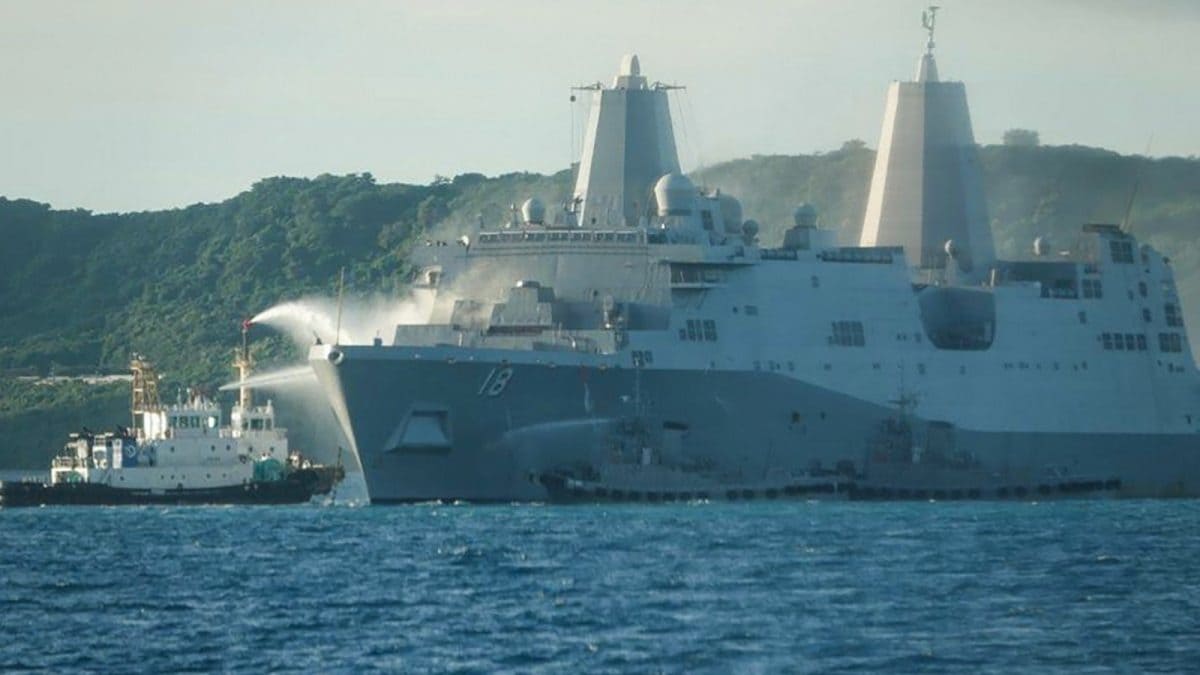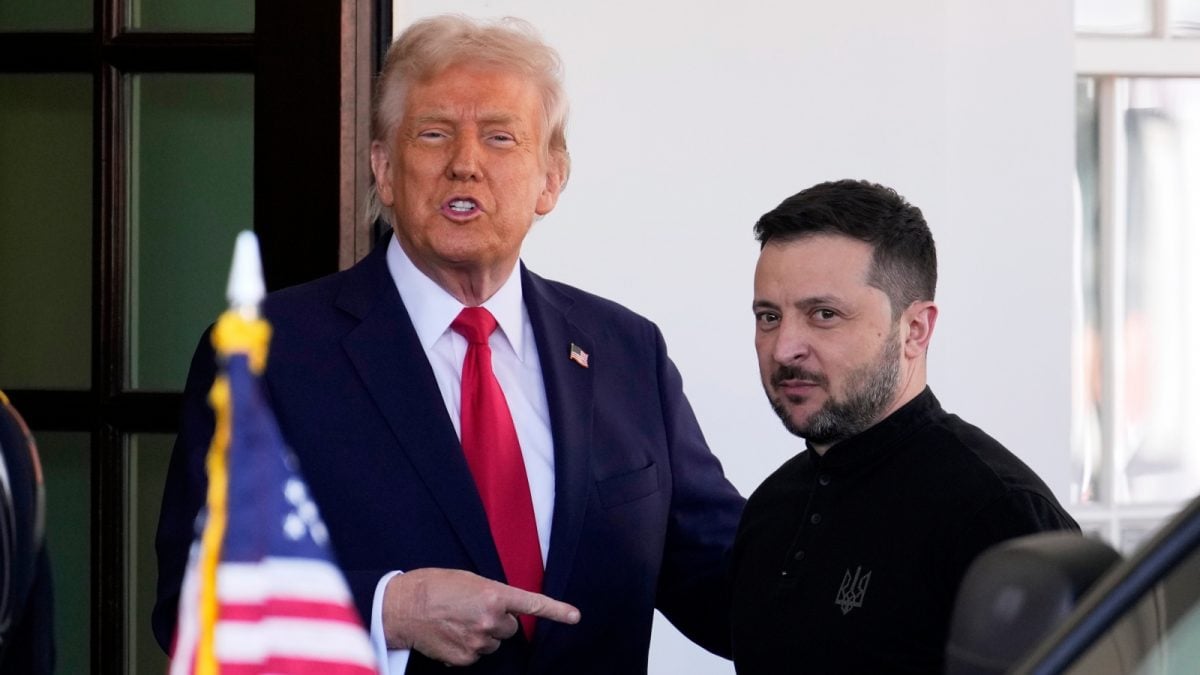After Pakistan's drubbing by India in Op Sindoor, a failed Asim Munir promoted himself to Field Marshal. But the failed marshal succeeded in wooing US President Trump with oil, cryptocurrencies, rare-earth riches, and a Nobel dream, all of which are non-existent. This is how Munir humoured Trump in uniform.

Asim Munir managed to woo Donald Trump with a Nobel Prize nomination and promises of multiple 'deals' that Pakistan might fail to deliver. (Image: File)
Some alliances defy logic, yet they endure because each side finds something useful in the other's weakness. Such is the relationship between Pakistani Army chief, Field Marshal Asim Munir, and US President Donald Trump. One represents a nation burdened by debt and insecurity, seeking favours and protection. The other thrives on spectacle. Munir's sycophancy towards Trump, and Washington's willingness to humour the man in uniform reveals much about the "ties".
A "Failed Marshal", as many defence experts have called Munir, was proven so when, on Pakistan's Independence Day, Samaa TV reportedly published a list of over 140 Pakistani soldiers, all given posthumous gallantry awards. The report was allegedly deleted soon after it went viral. Regardless, the fact that Pakistan suffered deep damage within its territory during India's Operation Sindoor, without being able to do anything but plead for a ceasefire, showed the hollowness of its military power led by Munir.
Despite the defeat, Munir stage-managed perceptions within Pakistan, which saw its people dancing on the streets even as the military was busy paving airstrips bombed by India.
Not glory, but guile seems to be Munir's weapon of choice.
Munir seems to have wowed Donald Trump with promises of oil, a state-backed cryptocurrency project, rare earth minerals of questionable scale, and most importantly, the Nobel Peace Prize the US President craves.
He has achieved a hyphenation by getting the US to brand Baloch outfits as Foreign Terrorist Organisations.
A CHANCE ENCOUNTER BETWEEN MUNIR AND TRUMP
Munir first visited the US when Israel launched Operation Rising Lion against Iran in June.
Visuals of Munir arriving in Washington DC surfaced just four days after the Israeli assault began. The visit was strategically timed, and came just over a month after Pakistan had taken a beating from India.
Pakistan shares a border with Iran and the US was to engage in airstrikes against the Khamenei regime.
In what appeared to be a Trumpian "deal" with Pakistan, an arrangement was made.
The US was likely exploring greater cooperation from Pakistan just days before it went on to bomb Iran's nuclear facilities.
Pakistan, fearful of unrest spilling over from Iran, where Baloch fighters enjoy cross-border support and ethnic ties, was apprehensive about any US-backed regime change in Tehran. Yet, Munir, reeling from the humiliation of Operation Sindoor, was desperate enough to offer whatever he could. The embrace of the US after years must have felt like a new-found life for the military leader of the Islamic Republic where fauj is supreme.
In the last two decades, the feeling in Islamabad was that it was losing its strategic value to the US.
This development came even as a cash-strapped Pakistan officially opened its doors to cryptocurrency and dangled that bait before Trump. The facilitator for the crypto project was chosen to be the World Liberty Financial cryptocurrency project, which is linked to the Trump family.
But given the state of Pakistan's economy, which is surviving on IMF bailouts and remittances, Trump's crypto interest and investment in Pakistan may turn out to be futile. Cryptocurrency's legal uncertainties and Pakistan's inadequate infrastructure may also jeopardise this pledge by Munir in the White House.
MUNIR GOING ALL GAS, WITHOUT GAS
Munir managed to wedge his foot in the door just in time. To his rescue came claims of Pakistan's "treasure trove of oil and gas reserves" – words that have long kindle optimism in the US, for which it often targets even modest oil reserves. What followed were tariff reliefs, in the form of just 19% reciprocal tariffs under the US trade deal, and talk of an oil arrangement, despite Pakistan's limited capacity to actually deliver on such promises.
As per the Petroleum Institute of Pakistan, the country's domestic oil production has been on the decline. Data shows it produced 89,030 barrels of crude oil per day in 2019, which it projected would decline to 64,262 barrels per day in 2025.
A 2019 oil discovery hyped by former Prime Minister Imran Khan also proved unviable after drilling.
Munir's latest plan to save Pakistan's economy through rare earth minerals, particularly via the Reko Diq project, is as unlikely as the oil promises. Munir recently claimed Reko Diq could generate $2 billion annually, erasing the country's debt.
Yet, Reuters reported that production can only start in 2028.
Also, the claims of the presence of rare earth minerals in Pakistan remain unproven. Moreover, rare earth element (REE) extraction requires advanced technology and infrastructure that Pakistan lacks, while environmental risks and high costs further complicate profitability.
In this context, Imran Khurshid, an Associate Research Fellow at the Centre for Peace Studies (ICPS), New Delhi, in an opinion article for the Eurasian Times, highlighted Pakistan’s precarious balancing act between China and the US over resources in Balochistan.
While Pakistan is courting US' interests with promises of oil and rare earth minerals, it risks straining ties with China – its key investor via the China-Pakistan Economic Corridor (CPEC).
China, which dominates global REE production, tolerates Pakistan’s US engagement due to its strategic utility against India. However, as US ambitions challenge China’s entrenched stakes in Balochistan, Pakistan’s tightrope walk becomes riskier.
Moreover, Pakistan's mineral reserves, often claimed to be worth $6 trillion and in some official narratives even inflated to $8 trillion, are seemingly exaggerated figures, as Canada-based defence journal Quwa points out.
While the country does hold significant copper and gold deposits in the Chagai district of Balochistan, extraction remains hampered by Balochistan's security challenges, with separatist attacks frequently targeting projects such as CPEC.
PAKISTAN TRYING TO EXPLOIT TRUMP'S NOBEL FANTASIES
Reports of Pakistan planning to nominate Trump for a Nobel Peace Prize surfaced soon after Munir landed in the US. Later, the White House confirmed that the US hosted Munir after he backed the Nobel bid, which was one of the first to nominate the "Peace President" for the prize.
However, the nomination lacks credibility given Pakistan's history of supporting terrorism, which undermines its moral authority on peace advocacy.
The US, under the Presidencies of Barack Obama, Joe Biden, and Trump himself, has listed Pakistan as a safe haven for groups like the Taliban and Lashkar-e-Taiba, among others. The LeT and its front, The Resistance Front, are proscribed terror organisations by the US State Department.
Hence, Pakistan's nomination of Trump for a ceasefire India denies he brokered shows exaggerated flattery, driven by economic desperation and its pursuit of "strategic depth" as a regional power.
Whether the Nobel Committee will consider a nation accused of suppressing human rights in Balochistan under Munir's leadership as a credible nominator remains uncertain.
Emboldened by Trump's support, Munir has threatened India from US soil and warned Pakistan's nuclear arsenal could plunge the world into chaos. Washington's failure to challenge this rhetoric reveals the Trump administration's shortsightedness. This temporary leverage over Munir's false promises will soon prove to be mere bluster.
- Ends
Published By:
Anand Singh
Published On:
Aug 21, 2025
Tune In

 5 hours ago
5 hours ago

















